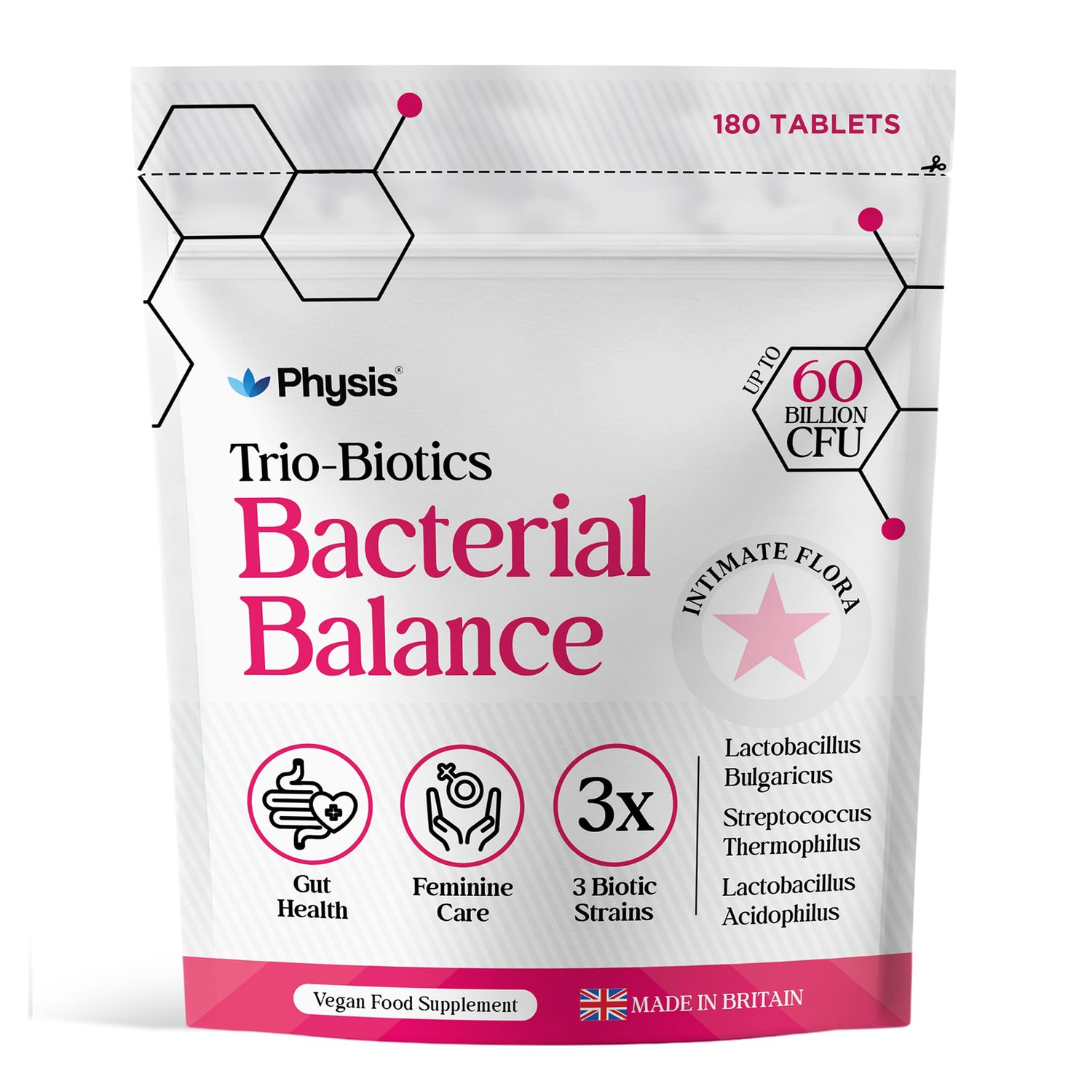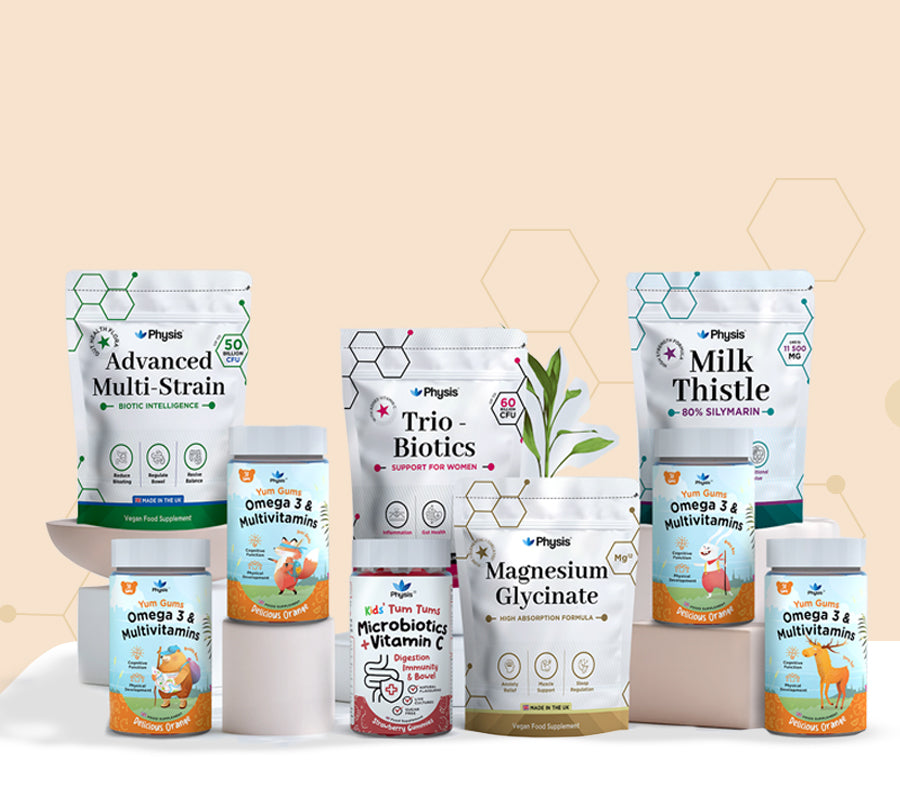Whatis a food supplement?
According to the European Food Safety Authority (EFSA), food supplements are concentrated sources of nutrients or other substances with a nutritional or physiological effect, intended to supplement the normal diet.
ShouldI take supplements with food?
In many cases, taking supplements with food can aid absorption. Stomach acid, released from ingesting food, improves mineral uptake and dietary fats found in food, help absorb fat-soluble vitamins (A, D, E, K). Some nutrients, however, are better absorbed away from food. Always follow the label instructions for the optimal results.
Are nutrients from supplements as effective as those from food?
While our bodies have evolved to breakdown and extract nutrients from whole foods, high-quality supplements can be just as effective – in some instances even more so - when formulated correctly. The key is choosing a reputable brand that uses nutrient forms that closely mimic those found in nature. In supplementation, quality determines how much your body absorbs, not just what’s listed on the label.
When will I feel the benefit of supplements?
Most people begin to notice benefits within 30 days of consistent use, though this varies by nutrient and individual health status. For many nutritional supplements, the best and most impactful long lasting results come from regular consecutive intake for at least 3 months. Remember consistency is key!
When should I take multivitamins?
Take multivitamins with or just after a meal for better absorption and to avoid nausea. Some nutrients, but not all, work synergistically with food. Always check the label for instructions.
What does time-released mean?
Time-released (or sustained-release) supplements gradually release nutrients over several hours - useful for water-soluble vitamins like vitamin C or B-complex that may have negative effects if taken in high doses all at once.
What does chelated mean?
Chelated minerals are bound to amino acids or other carriers to improve absorption. They’re especially helpful for individuals with compromised digestion.
What is bioavailability?
Bioavailability refers to how much of a nutrient is actually absorbed and available to be used by the body. It's influenced by form, food, gut health, and interactions.
How do medications affect food supplements?
Most supplements don’t interact with medicine. In fact, taking medication can increase the need for certain nutrients (e.g. B vitamins, vitamin C). Always check with your healthcare provider if you are taking medication.
What improves the efficacy of supplements?
Daily consistency, correct timing, and proper storage significantly impact results. Also consider how supplements are formulated and whether they contain bioavailable forms.
How can I assess food supplement quality?
You can spot the signs of a high-integrity supplements by asking the following:
i. Does the tablet count matches the label?
ii. Is the ingredient information detailed and thorough (the more detail the better)
iii. Is the tablet is evenly coated and is swallowing easy?
iv. Does the brand emphasises quality control and accreditations?
Why is UK food compliance law important?
UK food compliance law is essential to ensure consumer safety. By following strict regulations on ingredient limits, labelling, and health claims, brands demonstrate transparency, trustworthiness, and product reliability.
What is the difference between synthetic and natural ingredients?
Both can be effective. Natural ingredients may come with additional cofactors, while some synthetic (created in a lab) ingredients can offer consistency and higher bioavailability. A quality brand of food supplements will provide the better of the two options, according to efficacy.
Is there any difference in absorption between tablets and capsules?
No, provided the tablet is properly made, there is no difference between the absorbing tablets or capsules (even if you have poor digestion).
What do fillers and binders do?
Fillers help ingredients bind together and ensure consistent dosage. Binders add the right consistency to the formula. Physis carefully selects our fillers and binders with neutral or positive beneficial value (we say no to nasty fillers and binders!). These pro-health fillers and binders include:
• Dicalcium phosphate
• Cellulose
• Calcium stearate
• Magnesium stearate
• Silica
What certifications should I look for in a supplement brand?
GMP certified manufactured supplements are a must. Not only is this a UK requirement by law, GMP certification lays the groundwork for best practice, good food hygiene, traceability and accountability.
What is the role of excipients?
Excipients are inactive substances that improve manufacturing and stability. Reputable brands use minimal, high-quality excipients for safety and performance.
How do I know if my supplement is absorbing properly?
Look for signs of benefit after consistent use. Supplements with chelated minerals, tend to absorb better.
What’sthe difference between elemental value and bioavailability?
Elemental value tells you the actual amount of the nutrient (e.g. magnesium) in the ingredient. Bioavailability refers to the nutrient that remains active in the body after absorption.
Is bioavailability more important than dose?
Absolutely. A lower dose in a highly bioavailable form can be more effective than a high dose in a poorly absorbed form.
Where are Physis Nutrition products made?
Physis products are all manufactured under GMP certification and transported to our Facility in Wales where it is made up and sent out to customers, businesses and distribution centres. The Physis Facility is FBO registered with the local council and adheres to stringent HACCP regulation.
Are your products suitable for vegetarians?
Most of our products are vegetarian and suitable for vegans. Look for the vegan symbol on the label. If not present, assume it’s not vegan-friendly.
Areyour products gluten- and dairy-free?Are your
Yes - unless otherwise stated on the label, most of our products are hypoallergenic and free from gluten and milk derivatives.
Do your products need to be refrigerated?
No. Our advanced formulations ensure the products are shelf-stable. Simply store them in a cool, dry place, away from direct sunlight, with the lid sealed shut.
What is the shelf life after opening?
If stored properly, the shelf life remains as printed on the label. No degradation will occur if sealed and kept in cool, dry conditions.
Are your probiotics live?
Yes. We use carefully handled live strains and include an overage in manufacture to ensure 100% potency is maintained through shelf life.
What’s the difference between prebiotics and probiotics?
- Probiotics: Live beneficial
bacteria. - Prebiotics: Fibres that feed
the live beneficial bacteria in your gut.
Why combine prebiotics and probiotics?
When taken together, this combination is what is known as ‘microbiome therapy’. Prebiotics enhance probiotic survival and function - supporting digestion, immunity, and gut health.
What are strains in probiotics, and why do they matter?
Each probiotic is defined by (1) Genus, (2) Species, and (3) Strain Code:
For example: Lactobacillus Acidophilus LA11
Lactobacillus = Genus
Acidophilus = Species
LA11 = Strain Code
Different species of probiotics have different benefits. Furthermore, the Strain Code identifies the origin of the probiotic, ensuring transparency, traceability and research validation.
When is the best time to take probiotics?
Generally speaking, the best time to take probiotics is when you can do so consistently each day. They can be taken with or without food, morning or evening, depending on your routine. The key is consistency, as regular use helps support the advertised benefits. Always read the instructions to identify the best time of day and in or out of a fasted-state (empty stomach).



